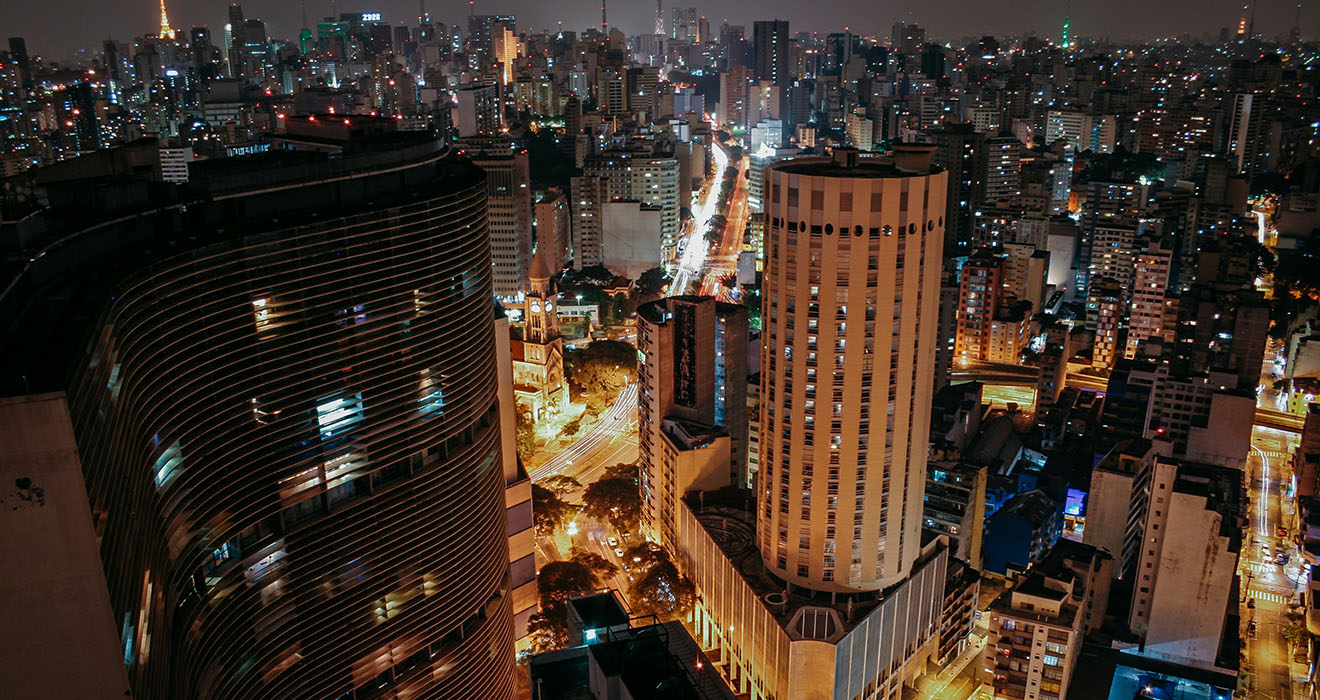Sao Paulo
Experience the vibrant culture and bustling city life
About Sao Paulo
Sao Paulo, the largest city in Brazil, is a dynamic metropolis known for its diverse cultural scene, vibrant nightlife, and rich history. With its impressive architecture, world-class museums, and thriving culinary scene, Sao Paulo offers an unforgettable urban experience.
Getting There and Around
Arrival
Airports: Sao Paulo-Guarulhos International Airport (GRU) and Congonhas Airport (CGH) are the main airports serving the city.
Train Stations: The city has several train stations, including Luz Station and Julio Prestes Station, offering connections to other cities in Brazil.
Bus Terminals: The Tiete Bus Terminal is the largest bus terminal in South America and provides extensive bus services within Brazil and neighboring countries.
Transportation
Public Transport Options: Sao Paulo has an extensive public transportation system, including buses and a metro network that covers the city's major areas.
Car Rentals: Car rental services are available at the airports and throughout the city.
Bike Shares: The city offers bike-sharing programs for convenient and eco-friendly transportation.
Tips: Traffic congestion is common in Sao Paulo, so it's advisable to plan travel during off-peak hours.
Accommodations
Overview: Sao Paulo offers a wide range of accommodations, from luxury hotels to budget-friendly hostels, catering to diverse traveler preferences.
Types of Accommodations: Visitors can choose from boutique hotels, international chains, cozy guesthouses, and serviced apartments.
Booking Tips: It's recommended to book accommodations in advance, especially during major events and festivals.
Local Regulations and Safety: Travelers should be aware of local safety regulations and secure accommodations in well-established areas.
Accessibility: Many accommodations in Sao Paulo provide facilities for guests with disabilities.
Jardins
Known for upscale hotels, fine dining, and high-end shopping.
Vila Madalena
A bohemian neighborhood with artistic vibes and charming guesthouses.
Liberdade
Famous for its Japanese community and traditional ryokans.
Centro Historico
Offers historic hotels and easy access to cultural landmarks.
Itaim Bibi
A trendy area with modern hotels and lively nightlife options.
Attractions and Activities
Sao Paulo Cathedral
A stunning neo-gothic cathedral with panoramic views from its observation deck.
Ibirapuera Park
A sprawling urban park featuring museums, lakes, and outdoor art installations.
Paulista Avenue
The city's iconic thoroughfare lined with cultural institutions, shopping centers, and restaurants.
MASP - Sao Paulo Museum of Art
Houses an impressive collection of European and Brazilian art in a striking modernist building.
Sao Paulo Municipal Market
A bustling market known for its diverse food stalls and vibrant atmosphere.
Dining and Nightlife
Culinary Scene
Sao Paulo boasts a diverse culinary scene, offering everything from traditional Brazilian dishes to international cuisine and innovative gastronomic experiences.
Vila Madalena
Known for its eclectic mix of restaurants, bars, and live music venues.
Jardins
Home to upscale dining establishments and renowned chef-driven restaurants.
Bixiga
Famous for its Italian eateries, trattorias, and authentic pizzerias.
Vila Olimpia
Offers a vibrant dining scene with diverse cuisines and trendy cocktail bars.
Liberdade
Features Japanese restaurants, teahouses, and authentic Asian flavors.
Festivals and Events
Sao Paulo Carnival
One of the largest and most vibrant carnival celebrations in the world, featuring parades, samba music, and colorful costumes.
Sao Paulo International Film Festival
Showcases a diverse selection of international films, attracting filmmakers and cinephiles from around the globe.
Virada Cultural
A 24-hour cultural festival with music, art, theater, and performances across the city's streets and venues.
Sao Paulo Fashion Week
Highlights the latest trends in fashion and design, featuring runway shows and industry events.
Lollapalooza Brazil
An annual music festival bringing together top international and Brazilian artists for a weekend of live performances.
Practical Information
Safety Tips
Travelers should remain vigilant in crowded areas and be cautious of pickpocketing and petty theft. It's advisable to use licensed taxis or ride-sharing services for transportation.
Healthcare
Pharmacies: Pharmacies are widely available throughout the city, offering over-the-counter medications and basic healthcare supplies.
Hospitals: Sao Paulo has numerous hospitals and medical facilities providing emergency and specialized care.
Emergency Services: In case of emergencies, dial 192 for ambulance services and 193 for the fire department or rescue services.
Currency and Payment
Local Currency: The official currency of Brazil is the Brazilian Real (BRL). Credit and debit cards are widely accepted in establishments, but it's advisable to carry cash for smaller vendors and markets.
Tipping Customs: Tipping is not mandatory in Brazil, but it's appreciated for good service, typically around 10% in restaurants and for tour guides.
Payment Methods Accepted: Major credit cards such as Visa, Mastercard, and American Express are commonly accepted, along with contactless payment methods.
Connectivity
Mobile Networks: Several mobile network providers offer prepaid SIM cards with data and calling plans for tourists. Ensure your phone is unlocked to use a local SIM card.
SIM Cards: Tourists can purchase prepaid SIM cards at airports, convenience stores, and authorized retailers throughout the city.
WiFi: Many hotels, restaurants, and public spaces in Sao Paulo offer free Wi-Fi access for visitors.
Local Customs and Etiquette
Culture Insights
Sao Paulo embraces a diverse cultural tapestry, influenced by indigenous, African, European, and Asian heritage, creating a melting pot of traditions and customs.
Greetings
Handshakes are common when meeting someone for the first time, and Brazilians often greet each other with a kiss on the cheek, even in formal settings.
Social Behavior
Brazilians are known for their warmth and hospitality, and social gatherings often revolve around food, music, and lively conversations.
Cultural Taboos
Avoid discussing sensitive topics such as politics and personal finances, and be mindful of cultural sensitivities regarding race, religion, and social status.
